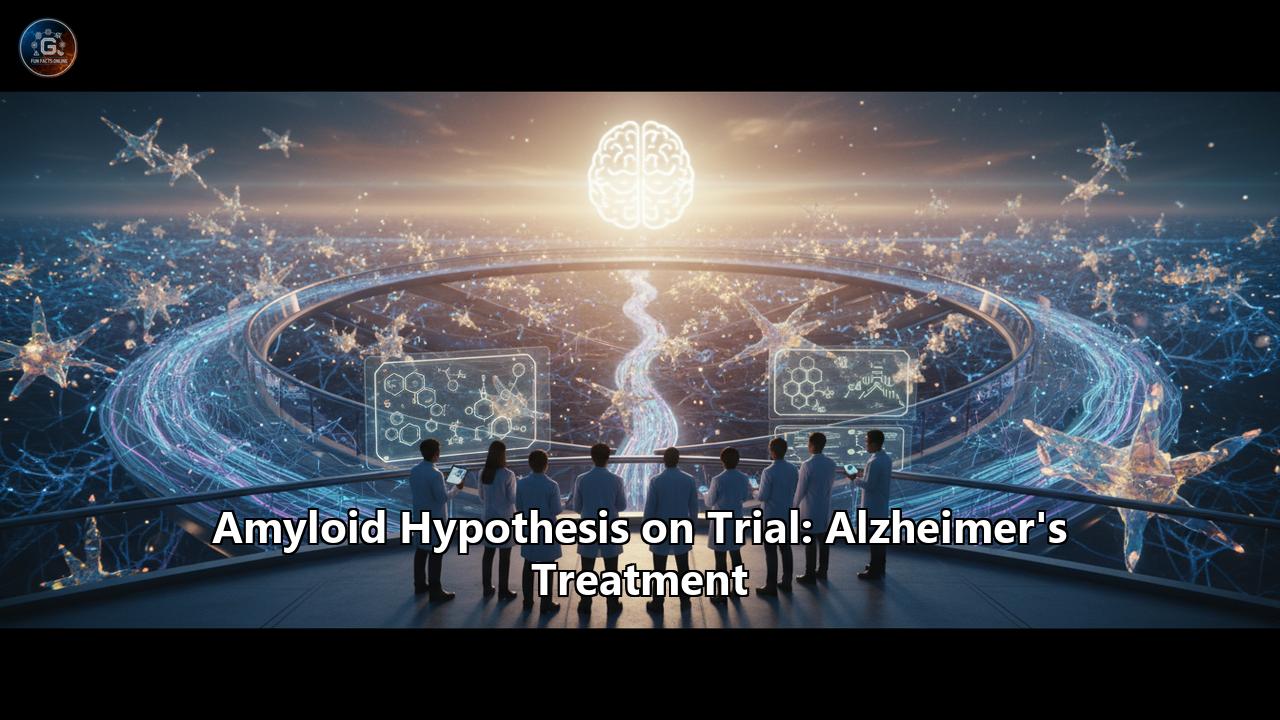microglia that can efficiently clear pathological proteins without causing collateral damage. Drugs targeting receptors like TREM2 are under active investigation.
- Earlier Diagnosis and Prevention: The clinical trial data strongly suggest that interventions are most effective when started very early in the disease process, before widespread, irreversible neurodegeneration has occurred. The development of highly sensitive and accessible biomarkers, especially blood tests, will be revolutionary. These will allow for the identification of at-risk individuals decades before symptoms appear, transforming Alzheimer's into a preventable or at least highly manageable condition.
- Personalized Medicine: As we better understand the different pathological drivers in different individuals, we may be able to tailor treatments. A patient with strong vascular risk factors might receive a different therapeutic combination than a patient with a strong genetic predisposition for inflammation.
The amyloid hypothesis, for all its controversies and setbacks, has been invaluable. It provided a testable framework that focused research for decades and led directly to the first generation of disease-modifying therapies. Its trial in the crucible of clinical science has been painful and expensive, but it has forced the field to confront the true complexity of Alzheimer's disease. The verdict is in, and it is not a simple one. Amyloid is guilty, but it did not act alone. The ongoing challenge is to identify and bring to trial its many co-conspirators, moving us closer to a future where dementia is no longer an inevitable consequence of this devastating disease.
Reference:
- https://pmc.ncbi.nlm.nih.gov/articles/PMC3687350/
- https://pmc.ncbi.nlm.nih.gov/articles/PMC3226305/
- https://www.aginganddisease.org/EN/10.14336/AD.2022.0130-1
- https://www.alzheimer-europe.org/news/researchers-show-how-trem2-interacts-cd33-reduce-neuroinflammation-preclinical-models-ad?language_content_entity=en
- https://www.frontiersin.org/journals/aging-neuroscience/articles/10.3389/fnagi.2023.1102809/full
- https://www.frontiersin.org/journals/cell-and-developmental-biology/articles/10.3389/fcell.2021.707268/full
- https://escholarship.org/uc/item/1444j9t4
- https://pmc.ncbi.nlm.nih.gov/articles/PMC7190606/
- https://pmc.ncbi.nlm.nih.gov/articles/PMC10474380/
- https://www.researchgate.net/figure/Mechanisms-of-Tau-spreading-A-Schematic-representation-of-Braak-stages-of-Tau_fig2_356941632
- https://www.biolife-publisher.it/ejnd/wp-content/uploads/2022/10/EJND_2020_92_Caraffa.pdf
- https://www.americanbrainfoundation.org/neuroinflammation-and-alzheimers-disease/
- https://www.frontiersin.org/journals/aging-neuroscience/articles/10.3389/fnagi.2020.00265/full
- https://pmc.ncbi.nlm.nih.gov/articles/PMC3096679/
- https://pubmed.ncbi.nlm.nih.gov/29377008/
- https://consultqd.clevelandclinic.org/herpesviruses-may-contribute-to-alzheimers-disease-via-transposable-elements
- https://pmc.ncbi.nlm.nih.gov/articles/PMC3065051/
- https://pmc.ncbi.nlm.nih.gov/articles/PMC9069408/
- https://pmc.ncbi.nlm.nih.gov/articles/PMC11867964/
- https://augusta.elsevierpure.com/en/publications/bloodbrain-barrier-breakdown-in-alzheimers-disease-mechanisms-and/
- https://www.frontiersin.org/journals/molecular-biosciences/articles/10.3389/fmolb.2024.1490275/full
- https://pmc.ncbi.nlm.nih.gov/articles/PMC6382549/
- https://portlandpress.com/biochemsoctrans/article/51/1/173/232482/Interactions-between-amyloid-amyloid-precursor
- https://rupress.org/jem/article/214/11/3151/42256/Alzheimer-s-disease-A-matter-of-blood-brain
- https://www.medlink.com/news/herpes-virus-might-drive-alzheimers-pathology-study-suggests
- https://www.mdpi.com/2075-1729/15/1/96
- https://www.mdpi.com/2077-0383/14/2/331
- https://www.ahajournals.org/doi/10.1161/ATVBAHA.120.311911
- https://pubmed.ncbi.nlm.nih.gov/17917162/
- https://scispace.com/pdf/autophagy-failure-in-alzheimer-s-disease-and-the-role-of-1s4ugfjlat.pdf
- https://www.sciencedaily.com/releases/2025/02/250204141835.htm
- https://pmc.ncbi.nlm.nih.gov/articles/PMC12043021/
- https://www.youtube.com/watch?v=O5XHqKJjQGw
- https://pmc.ncbi.nlm.nih.gov/articles/PMC6728215/
- https://www.sciencedaily.com/releases/2025/01/250102162457.htm
- https://pmc.ncbi.nlm.nih.gov/articles/PMC6214864/
- https://www.sciencedaily.com/releases/2019/07/190711122705.htm
- https://curealz.org/news-and-events/targeting-inflammation-may-be-the-key-to-developing-a-therapy-for-alzheimers-disease/
- https://pmc.ncbi.nlm.nih.gov/articles/PMC2636844/
- https://pmc.ncbi.nlm.nih.gov/articles/PMC6571853/
- https://www.youtube.com/watch?v=eRflO6ZfaLI
- https://eprints.whiterose.ac.uk/id/eprint/92486/1/Di_Marco_et_al_NeurobiologyDisease_2015.pdf
- https://pmc.ncbi.nlm.nih.gov/articles/PMC12239022/
- https://pmc.ncbi.nlm.nih.gov/articles/PMC4062187/
- https://research.manchester.ac.uk/en/publications/vascular-dysfunction-in-the-pathogenesis-of-alzheimers-disease-a-/
- https://pmc.ncbi.nlm.nih.gov/articles/PMC10138543/

